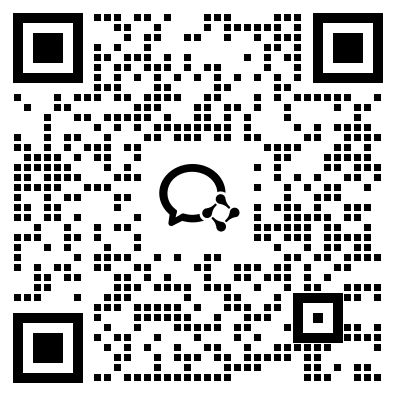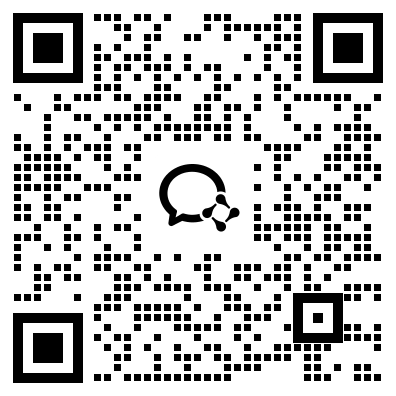考研201英语(一)在线题库每日一练(五十八)
摘要:以下是希赛网给大家分享考研201英语(一)在线题库每日一练,希望通过刷题可以帮助大家巩固重要知识点,对知识点查漏补缺,祝愿大家能顺利通过考试!
本文提供考研201英语(一)在线题库每日一练,以下为具体内容
1、In 1924 America's National Research Council sent two engineers to supervise a series of industrial experiments at a large telephone-parts factory called the Hawthorne Plant near Chicago. It hoped they would learn how stop-floor lighting (1)workers' productivity. Instead, the studies ended (2) giving their name to the "Hawthorne effect", the extremely influential idea that the very (3) to being experimented upon changed subjects' behavior. The idea arose because of the behavior of the women in the (4) Hawthorne plant. According to (5) of the experiments, their hourly output rose when lighting was increased, but also when it was dimmed. It did not (6) what was done in the experiment; (7)something was changed, productivity rose. A(n) (8) that they were being experimented upon seemed to be (9) to alter workers' behavior (10) itself. After several decades, the same data were (11) to econometric the analysis. Hawthorne experiments has another surprise in store (12) the descriptions on record, no systematic (13) was found that levels of productivity were related to changes in lighting. It turns out that peculiar way of conducting the experiments may have led to (14) interpretation of what happened. (15), lighting was always changed on a Sunday. When work started again on Monday, output (16) rose compared with the previous Saturday and (17) to rise for the next couple of days. (18), a comparison with data for weeks when there was no experimentation showed that output always went up on Monday, workers (19) to be diligent for the first few days of the week in any case, before (20) a plateau and then slackening off. This suggests that the alleged "Hawthorne effect" is hard to pin down.
问题1
A、affected
B、achieved
C、extracted
D、restored
问题2
A、at
B、up
C、with
D、off
问题3
A、truth
B、sight
C、act
D、proof
问题4
A、controversial
B、perplexing
C、mischievous
D、ambiguous
问题5
A、requirements
B、explanations
C、accounts
D、assessments
问题6
A、conclude
B、matter
C、indicate
D、work
问题7
A、as far as
B、for fear that
C、in case that
D、so long as
问题8
A、awareness
B、expectation
C、sentiment
D、illusion
问题9
A、suitable
B、excessive
C、enough
D、abundant
问题10
A、about
B、for
C、on
D、by
问题11
A、compared
B、shown
C、subjected
D、conveyed
问题12
A、contrary to
B、consistent with
C、parallel with
D、peculiar to
问题13
A、evidence
B、guidance
C、implication
D、source
问题14
A、disputable
B、enlightening
C、reliable
D、misleading
问题15
A、In contrast
B、For example
C、In consequence
D、As usual
问题16
A、duly
B、accidentally
C、unpredictably
D、suddenly
问题17
A、failed
B、ceased
C、started
D、continued
问题18
A、Therefore
B、Furthermore
C、However
D、Meanwhile
问题19
A、attempted
B、tended
C、chose
D、intended
问题20
A、breaking
B、climbing
C、surpassing
D、hitting
2、Bankers have been blaming themselves for their troubles in public. Behind the scenes, they have been taking aim at someone else: the accounting standard-setters. Their rules, moan the banks, have forced them to report enormous losses, and it's just not fair. These rules say they must value some assets at the price a third party would pay, not the price managers and regulators would like them to fetch.Unfortunately, banks' lobbying now seems to be working. The details may be unknowable, but the independence of standard-setters, essential to the proper functioning of capital markets, is being compromised. And, unless banks carry toxic assets at prices that attract buyers, reviving the banking system will be difficult.After a bruising encounter with Congress, America's Financial Accounting Standards Board (FASB) rushed through rule changes. These gave banks more freedom to use models to value illiquid assets and more flexibility in recognizing losses on long-term assets in their income statements. Bob Herz, the FASB's chairman, cried out against those who “question our motives.” Yet bank shares rose and the changes enhance what one lobbying group politely calls “the use of judgment by management.”European ministers instantly demanded that the International Accounting Standards Board (IASB) do likewise. The IASB says it does not want to act without overall planning, but the pressure to fold when it completes its reconstruction of rules later this year is strong. Charlie McCreevy, a European commissioner, warned the IASB that it did “not live in a political vacuum” but “in the real world” and that Europe could yet develop different rules.It was banks that were on the wrong planet, with accounts that vastly overvalued assets. Today they argue that market prices overstate losses, because they largely reflect the temporary illiquidity of markets, not the likely extent of bad debts. The truth will not be known for years. But banks' shares trade below their book value, suggesting that investors are skeptical. And dead markets partly reflect the paralysis of banks which will not sell assets for fear of booking losses, yet are reluctant to buy all those supposed bargains.To get the system working again, losses must be recognized and dealt with. America's new plan to buy up toxic assets will not work unless banks mark assets to levels which buyers find attractive. Successful markets require independent and even combative standard-setters. The FASB and IASB have been exactly that, cleaning up rules on stock options and pensions, for example, against hostility from special interests. But by giving in to critics now they are inviting pressure to make more concessions.1.Bankers complained that they were forced to( ).2.According to the author, the rule changes of the FASB may result in ( ). 3.According to Paragraph 4, McCreevy objects to the IASB's attempt to ( ). 4.The author thinks the banks were “on the wrong planet” in that they ( ). 5.The author's attitude towards standard-setters is one of( ).
问题1
A、follow unfavorable asset evaluation rules
B、collect payments from third parties
C、cooperate with the price managers
D、reevaluate some of their assets
问题2
A、the diminishing role of management
B、the revival of the banking system
C、the banks' long-term asset losses
D、the weakening of its independence
问题3
A、keep away from political influences
B、evade the pressure from their peers
C、act on their own in rule-setting
D、take gradual measures in reform
问题4
A、misinterpreted market price indicators
B、exaggerated the real value of their assets
C、neglected the likely existence of bad debts
D、denied booking losses in their sale of assets
问题5
A、satisfaction
B、skepticism
C、objectiveness
D、sympathy
3、The decision of the New York Philharmonic to hire Alan Gilbert as its next music director has been the talk of the classical-music world ever since the sudden announcement of his appointment in 2009. For the most part, the response has been favorable, to say the least. “Hooray! At last!” wrote Anthony Tommasini, a sober-sided classical-music critic. One of the reasons why the appointment came as such a surprise, however, is that Gilbert is comparatively little known. Even Tommasini, who had advocated Gilbert's appointment in the Times, calls him “an unpretentious musician with no air of the formidable conductor about him.” As a description of the next music director of an orchestra that has hitherto been led by musicians like Gustav Mahler and Pierre Boulez, that seems likely to have struck at least some Times readers as faint praise. For my part, I have no idea whether Gilbert is a great conductor or even a good one. To be sure, he performs an impressive variety of interesting compositions, but it is not necessary for me to visit Avery Fisher Hall, or anywhere else, to hear interesting orchestral music. All I have to do is to go to my CD shelf, or boot up my computer and download still more recorded music from iTunes. Devoted concertgoers who reply that recordings are no substitute for live performance are missing the point. For the time, attention, and money of the art-loving public, classical instrumentalists must compete not only with opera houses, dance troupes, theater companies, and museums, but also with the recorded performances of the great classical musicians of the 20th century. There recordings are cheap, available everywhere, and very often much higher in artistic quality than today's live performances; moreover, they can be “consumed” at a time and place of the listener's choosing. The widespread availability of such recordings has thus brought about a crisis in the institution of the traditional classical concert. One possible response is for classical performers to program attractive new music that is not yet available on record. Gilbert's own interest in new music has been widely noted: Alex Ross, a classical-music critic, has described him as a man who is capable of turning the Philharmonic into “a markedly different, more vibrant organization.” But what will be the nature of that difference? Merely expanding the orchestra's repertoire will not be enough. If Gilbert and the Philharmonic are to succeed, they must first change the relationship between America's oldest orchestra and the new audience it hopes to attract. 1.We learn from Para.1 that Gilbert's appointment has( ).2.Tommasini regards Gilbert as an artist who is ( ). 3.The author believes that the devoted concertgoers ( ). 4.According to the text, which of the following is true of recordings? 5.Regarding Gilbert's role in revitalizing the Philharmonic, the author feels( ).
问题1
A、incurred criticism
B、raised suspicion
C、received acclaim
D、aroused curiosity
问题2
A、influential
B、modest
C、respectable
D、talented
问题3
A、ignore the expenses of live performances
B、reject most kinds of recorded performances
C、exaggerate the variety of live performances
D、overestimate the value of live performances
问题4
A、They are often inferior to live concerts in quality.
B、They are easily accessible to the general public.
C、They help improve the quality of music.
D、They have only covered masterpieces.
问题5
A、doubtful
B、enthusiastic
C、confident
D、puzzled
4、Come on—Everybody's doing it. That whispered message, half invitation and half forcing, is what most of us think of when we hear the words peer pressure. It usually leads to no good—drinking, drugs and casual sex. But in her new book Join the Club, Tina Rosenberg contends that peer pressure can also be a positive force through what she calls the social cure, in which organizations and officials use the power of group dynamics to help individuals improve their lives and possibly the word. Rosenberg, the recipient of a Pulitzer Prize, offers a host of example of the social cure in action: In South Carolina, a state-sponsored antismoking program called Rage Against the Haze sets out to make cigarettes uncool. In South Africa, an HIV-prevention initiative known as LoveLife recruits young people to promote safe sex among their peers. The idea seems promising, and Rosenberg is a perceptive observer. Her critique of the lameness of many pubic-health campaigns is spot-on: they fail to mobilize peer pressure for healthy habits, and they demonstrate a seriously flawed understanding of psychology. "Dare to be different, please don't smoke!” pleads one billboard campaign aimed at reducing smoking among teenagers-teenagers, who desire nothing more than fitting in. Rosenberg argues convincingly that public-health advocates ought to take a page from advertisers, so skilled at applying peer pressure. But on the general effectiveness of the social cure, Rosenberg is less persuasive. Join the Club is filled with too much irrelevant detail and not enough exploration of the social and biological factors that make peer pressure so powerful. The most glaring flaw of the social cure as it's presented here is that it doesn't work very well for very long. Rage Against the Haze failed once state funding was cut. Evidence that the LoveLife program produces lasting changes is limited and mixed. There's no doubt that our peer groups exert enormous influence on our behavior. An emerging body of research shows that positive health habits—as well as negative ones—spread through networks of friends via social communication. This is a subtle form of peer pressure: we unconsciously imitate the behavior we see every day. Far less certain, however, is how successfully experts and bureaucrats can select our peer groups and steer their activities in virtuous directions. It's like the teacher who breaks up the troublemakers in the back row by pairing them with better-behaved classmates. The tactic never really works. And that's the problem with a social cure engineered from the outside: in the real world, as in school, we insist on choosing our own friends. 1.According to the first paragraph, peer pressure often emerges as( ).2.Rosenberg holds that public advocates should ( ). 3.In the author's view, Rosenberg's book fails to ( ). 4.Paragraph 5 shows that our imitation of behaviors ( ). 5.The author suggests in the last paragraph that the effect of peer pressure is( ).
问题1
A、a supplement to the social cure
B、a stimulus to group dynamics
C、an obstacle to school progress
D、a cause of undesirable behaviors
问题2
A、recruit professional advertisers
B、learn from advertisers' experience
C、stay away from commercial advertisers
D、recognize the limitations of advertisements
问题3
A、adequately probe social and biological factors
B、effectively evade the flaws of the social cure
C、illustrate the functions of state funding
D、produce a long-lasting social effect
问题4
A、is harmful to our networks of friends
B、will mislead behavioral studies
C、occurs without our realizing it
D、can produce negative health habits
问题5
A、harmful
B、desirable
C、profound
D、questionable
5、If the trade unionist Jimmy Hoffa were alive today, he would probably represent civil servant. When Hoffa's Teamsters were in their prime in 1960, only one in ten American government workers belonged to a union; now 36% do. In 2009 the number of unionists in America's public sector passed that of their fellow members in the private sector. In Britain, more than half of public-sector workers but only about 15% of private-sector ones are unionized. There are three reasons for the public-sector unions' thriving. First, they can shut things down without suffering much in the way of consequences. Second, they are mostly bright and well-educated. A quarter of America's public-sector workers have a university degree. Third, they now dominate left-of-centre politics. Some of their ties go back a long way. Britain's Labor Party, as its name implies, has long been associated with trade unionism. Its current leader, Ed Miliband, owes his position to votes from public-sector unions. At the state level their influence can be even more fearsome. Mark Baldassare of the Public Policy Institute of California points out that much of the state's budget is patrolled by unions. The teachers' unions keep an eye on schools, the CCPOA on prisons and a variety of labor groups on health care. In many rich countries average wages in the state sector are higher than in the private one. But the real gains come in benefits and work practices. Politicians have repeatedly “backloaded” public-sector pay deals, keeping the pay increases modest but adding to holidays and especially pensions that are already generous. Reform has been vigorously opposed, perhaps most egregiously in education, where charter schools, academies and merit pay all faced drawn-out battles. Even though there is plenty of evidence that the quality of the teachers is the most important variable, teachers' unions have fought against getting rid of bad ones and promoting good ones. As the cost to everyone else has become clearer, politicians have begun to clamp down. In Wisconsin the unions have rallied thousands of supporters against Scott Walker, the hardline Republican governor. But many within the public sector suffer under the current system, too. John Donahue at Harvard's Kennedy School points out that the norms of culture in Western civil services suit those who want to stay put but is bad for high achievers. The only American public-sector workers who earn well above $250,000 a year are university sports coaches and the president of the United States. Bankers' fat pay packets have attracted much criticism, but a public-sector system that does not reward high achievers may be a much bigger problem for America. 1.It can be learned from the first paragraph that( ).2.Which of the following is true of Paragraph 2? 3.It can be learned from Paragraph 4 that the income in the state sector is( ). 4.The example of the unions in Wisconsin shows that unions ( ). 5.John Donahue's attitude towards the public-sector system is one of ( ).
问题1
A、Teamsters still have a large body of members
B、Jimmy Hoffa used to work as a civil servant
C、unions have enlarged their public-sector membership
D、the government has improved its relationship with unionists
问题2
A、Public-sector unions are prudent in taking actions.
B、Education is required for public-sector union membership.
C、Labor Party has long been fighting against public-sector unions.
D、Public-sector unions seldom get in trouble for their actions.
问题3
A、illegally secured
B、indirectly augmented
C、excessively increased
D、fairly adjusted
问题4
A、often run against the current political system
B、can change people's political attitudes
C、may be a barrier to public-sector reforms
D、are dominant in the government
问题5
A、disapproval
B、appreciation
C、tolerance
D、indifference
点击查看【完整】试卷>>延伸阅读

考研微信公众号

考研备考资料免费领取
去领取
- 3
- 0
- 0
 专注在线职业教育25年
专注在线职业教育25年









 扫描二维码
扫描二维码
 扫描二维码
扫描二维码








